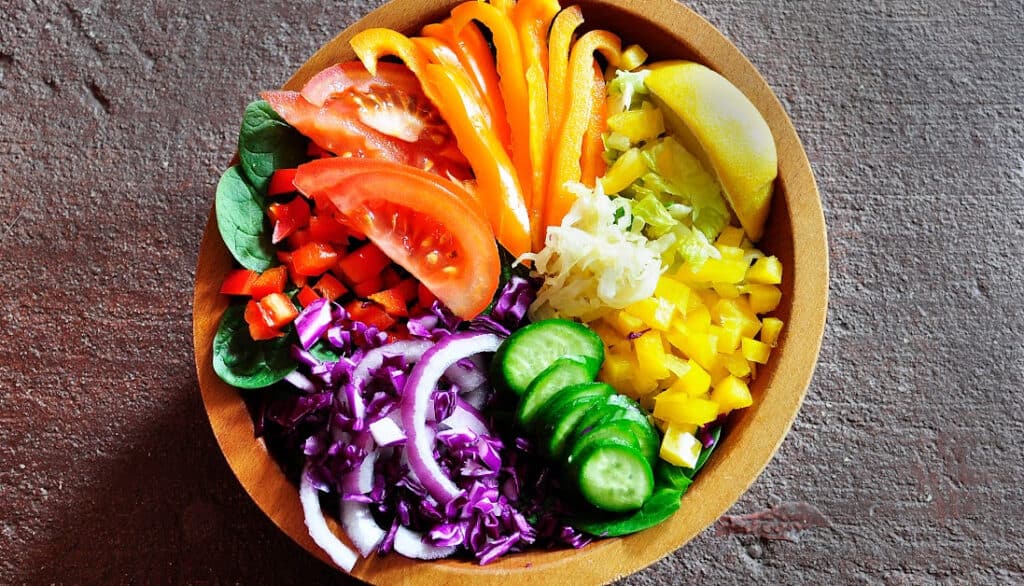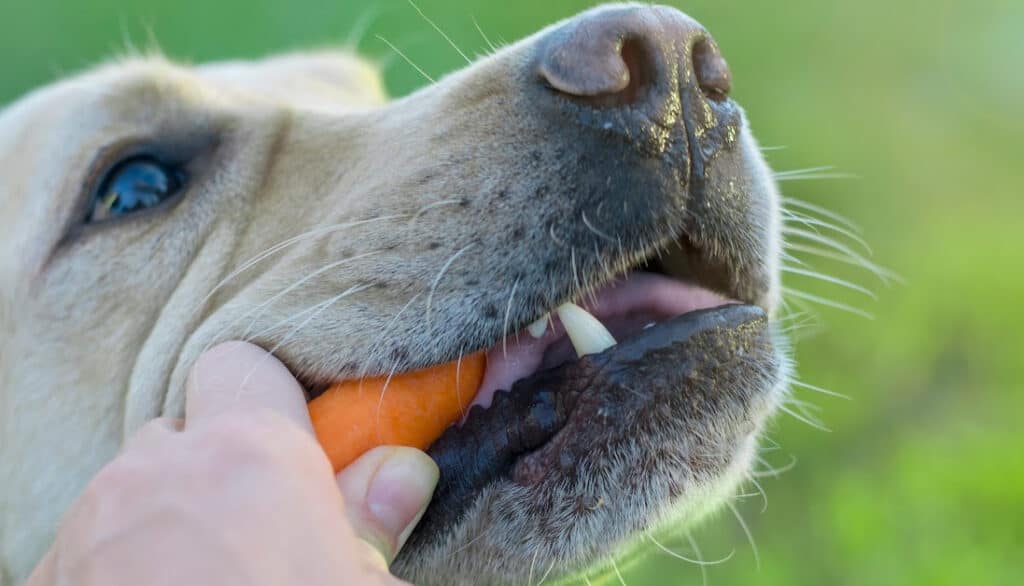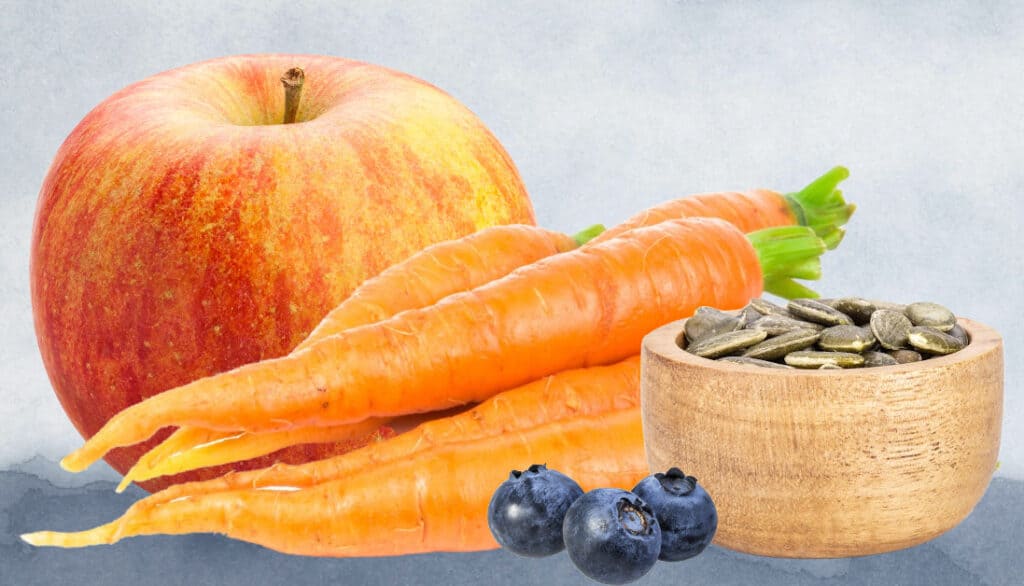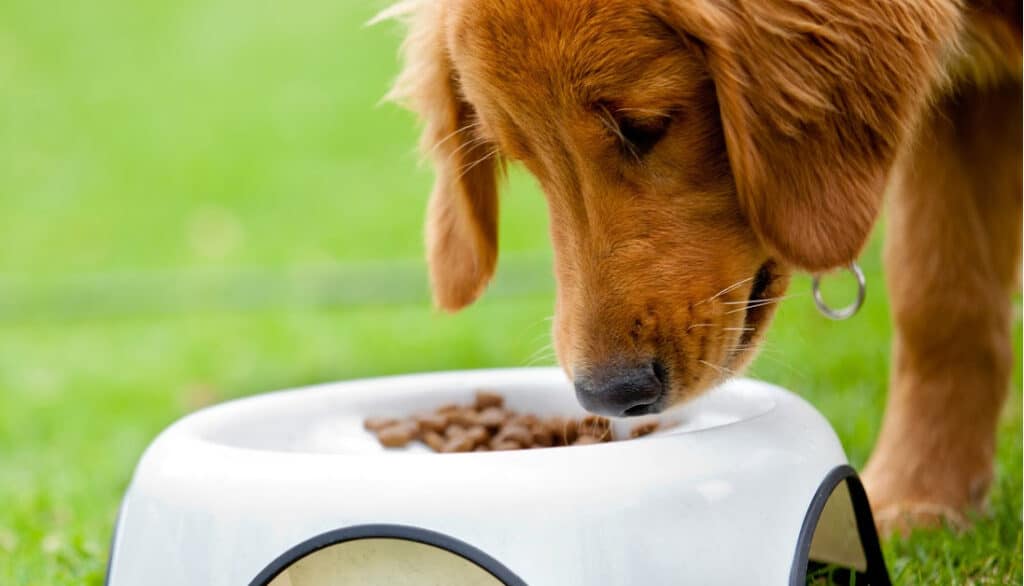The Great Debate: Can Dogs Eat Cheeseballs?
Cheeseballs: A Classic Snack Food
Ah, cheeseballs. The perfect party snack. They are a favorite among many for their cheesy goodness and crunch, making them a staple at any get-together. But have you ever stopped to think “Can dogs eat cheeseballs?”
The Question at Hand
The short answer is no, dogs should not eat cheeseballs. Although they may seem harmless, the high-fat content and artificial flavors found in cheeseballs can be harmful to our four-legged friends.
However, this raises an important question – why shouldn’t dogs be able to enjoy the same treats that we do? Firstly, let’s take a closer look at what cheeseballs actually are.

What Are Cheeseballs?
Cheeseballs often use processed cheese. This is mixed with flour and seasonings. Then, they are shaped into small balls. Crunchy bits like nuts or breadcrumbs coat them. Due to their ingredients, they are often calorie-rich.
Humans may handle their high-fat content and artificial flavors. However, our dogs have different nutritional needs. It’s crucial to remember this when feeding them.
The Risks of Feeding Cheeseballs to Dogs
One of the biggest risks associated with feeding cheeseballs to dogs is their high-fat content. Too much fat can lead to obesity which can then cause other health issues such as diabetes or heart problems if left unchecked.
Additionally, some of the artificial flavors used in cheeseball production can upset a dog’s stomach or even cause allergic reactions. Furthermore, there is always the risk of choking on small pieces of nuts or breadcrumbs that coat the outside of each ball-shaped snack.

Alternatives to Cheeseballs for Dog Snacks
Luckily, there are plenty of healthy dog-friendly alternatives to cheeseballs that both you and your furry friend can enjoy. Consider offering them fruits like apple slices or veggies like carrots as a snack instead.
There are also plenty of specially made dog treats available that are formulated with your dog’s nutritional needs in mind. Be sure to check the ingredients and nutritional information before purchasing any treats to ensure they are appropriate for your pet.
Feeding Your Dog a Balanced Diet
It’s important to remember that snacks should not make up the majority of your dog’s diet. Feeding them a balanced meal plan is crucial for their overall health and well-being. If you do decide to feed your dog human food, always do so in moderation and be aware of any potential risks associated with the ingredients you’re considering.
While cheeseballs may be an enjoyable snack food for humans, they should be avoided when it comes to our furry friends. Opt for healthy alternatives or specially made dog treats instead, and always prioritize giving them a balanced diet.

Can Dogs Eat Cheeseballs?
The Risks of Feeding Cheeseballs to Dogs
Cheeseballs are a popular snack that many people enjoy. They are often made with high amounts of fat and artificial flavors, which can make them dangerous for dogs to eat. While cheese is generally safe for dogs in small amounts, cheeseballs should be avoided due to the added ingredients.
One of the primary concerns with cheeseballs is their high-fat content. Dogs’ bodies are not designed to handle large amounts of fat, and consuming too much can cause pancreatitis, a serious condition that can lead to vomiting, diarrhea, and even death.
In addition to the high-fat content, cheeseballs also often contain artificial flavors and preservatives that can be harmful to dogs. These ingredients have been linked to digestive issues and allergies in some dogs.
Small Amounts of Plain Cheese May Be Okay for Some Dogs
While cheeseballs should generally be avoided, small amounts of plain cheese may be okay for some dogs. Cheese is a good source of protein and calcium, which are important nutrients for your dog’s health.
It’s important to note that not all dogs can tolerate dairy products like cheese. Some dogs may experience digestive issues such as diarrhea or vomiting after consuming dairy products.
Therefore, it’s essential always to start with small portions when introducing new foods into your dog’s diet. If you do decide to give your dog plain cheese as a treat or reward, make sure it’s in moderation and not too often because too much dairy can cause stomach upset or even weight gain.

Cheeseball Alternatives For Your Furry Friend
If you’re looking for healthy snack options for your furry friend, there are plenty of alternatives available! Many fruits and vegetables are safe for dogs to eat and provide nutrients without added fats or preservatives. For example, carrots are an excellent low-calorie option that is rich in vitamins, while apples provide fiber and can help clean your dog’s teeth.
You can also find specially made dog treats at your local pet store that are designed specifically for canine nutrition. Remember, always check the ingredients before buying any treat or food for your dog, and if you have any doubts about a particular snack or ingredient, it’s best to consult with a veterinarian.
Providing Your Dog A Balanced Diet
Feeding your dog a balanced diet is crucial to their overall health and well-being. A well-balanced diet should include protein, carbohydrates, fats, vitamins, and minerals in the right amounts.
While feeding your dog human foods like cheese as a treat is okay in moderation, it should never replace their regular meals. It’s vital to choose snacks that complement their regular diet rather than ones that will harm them.
Make sure to talk to your veterinarian about what kind of foods you should avoid feeding your furry friend. Every dog has different nutritional needs based on factors like age, weight and breed.
The Bottom Line
Cheeseballs are not a safe snack for dogs due to their high fat content and artificial flavors. While small amounts of plain cheese may be okay for some dogs as a treat or reward occasionally if they tolerate it well enough.
It’s best always to choose healthy snack alternatives such as carrots or apples when looking for something special to give them. Remember that feeding your furry friend human snacks without careful consideration of its impact on their diet can lead to stomach upset or even more severe health problems down the line.

Healthy Alternatives to Cheeseballs for Dog Snacks
If you’re looking for a healthy alternative to cheeseballs as a treat for your dog, there are plenty of choices that can be good for their health. Dogs love fruits and vegetables just as much as humans do. They’re a great source of vitamins, fiber, and other essential nutrients that dogs need in their diet.
Carrots
Carrots are an excellent choice as a snack for dogs. Not only are they low in calories, but they also provide a good source of fiber and Vitamin A. They help support overall health, digestion and keep their teeth clean by providing some abrasion when chewed. Carrots are rich in beta-carotene which is an antioxidant that helps improve eyesight.
Apples
Apples are another delicious and healthy snack option for dogs. They are known to improve digestion, boost the immune system by providing vitamins B & C and it helps to keep teeth clean when eaten raw. Be sure to remove the seeds because they contain cyanide which is toxic if ingested.
Specially Made Dog Treats
There are plenty of specially made dog treats available on the market today that can provide healthy benefits without compromising on taste or enjoyment. These treats come in different flavors such as chicken or beef with added vitamins and minerals such as omega fatty acids or glucosamine which support joint mobility. When looking for dog treats, check the label carefully and ensure it’s free from artificial colors, flavorings or preservatives since these additives can lead to potential health issues such as allergies or weight gain.
Pumpkin Seeds
Pumpkin seeds can be roasted with low sodium seasoning making them a great snacking option since they’re rich in antioxidants, protein and magnesium which supports bone growth while reducing inflammation.
Blueberries
Blueberries are another healthy fruit option for dogs since they’re rich in antioxidants and vitamins. They’re low in calories, high in fiber that supports weight control and helps to regulate blood sugar levels.
Cheeseballs should be avoided as a treat for dogs due to their high-fat content and artificial flavorings that can cause potential health issues. Instead, treat your furry friend with one of these healthy snack options such as carrots, apples, pumpkin seeds or specially made dog treats which will provide them with the essential nutrients they need to support overall good health.

The Importance of a Balanced Diet for Dogs
Dogs, like people, require a balanced diet to maintain good health. A healthy diet for dogs should include protein, carbohydrates, fats, vitamins and minerals.
Protein is particularly important as it helps build and repair tissues. Carbohydrates provide energy while fats help to insulate the body and protect internal organs.
When it comes to choosing food for your dog, it’s important to select high-quality dog food that is specifically formulated for their age and breed. While it may be tempting to feed them human food, this can be detrimental to their health in the long term.
Emphasize the Importance of Providing a Balanced Diet for Your Furry Friend
Feeding your furry friend a balanced diet helps ensure that they receive all the nutrients they need to maintain good health. If you’re unsure about what foods are best for your dog or how much you should be feeding them, speak with your veterinarian.
Some dogs have unique dietary needs due to breed-specific conditions or allergies. For example, some breeds are prone to digestive issues or skin problems which can be exacerbated by certain foods.
Mention That Feeding Them Human Food Should Always Be Done in Moderation
While there’s nothing wrong with giving your furry friend an occasional treat from the table if done in moderation, human food should never replace quality dog food in their regular diet. Certain human foods can actually be dangerous for dogs such as chocolate or onions which can cause toxicity. Additionally, even safe human foods like cheeseballs can cause digestive upset due to their high-fat content.
As always moderation is key when offering human food as treats. Stick with small amounts of safe options such as plain cooked chicken or vegetables instead of processed snacks like cheeseballs.
Avoid Overfeeding Your Dog
Overfeeding your dog not only leads to weight gain but can also increase their risk of developing health problems such as heart disease, diabetes, and joint issues. Make sure to measure out their food according to the recommended serving size for their weight and activity level.
Additionally, avoid giving table scraps or treats too frequently as these can quickly add up in calories. If your dog is overweight or obese, speak with your veterinarian about a weight loss plan including a proper diet and exercise routine.
Conclusion: Prioritize Your Dog’s Health
Providing your furry friend with a well-balanced diet is essential for good health. Stick to quality dog food that meets their nutritional needs and limit human food only as an occasional treat. Remember that overfeeding or offering unhealthy snacks like cheeseballs can cause long-term problems so always prioritize your dog’s health when choosing what to feed them.

The Final Word: Can Dogs Eat Cheeseballs?
After reading through the potential risks of feeding cheeseballs to dogs and the alternatives available, it’s clear that cheeseballs are not an ideal snack for our furry friends. While some dogs may be able to handle small amounts of plain cheese, we can’t ignore the high fat content and artificial ingredients found in most cheeseball products.
It’s important to remember that our pets rely on us to make choices that prioritize their health and well-being. Even if they beg with their puppy dog eyes, we must resist the urge to give in to unhealthy snacks.
Feeding a nutritious, balanced diet and providing appropriate treats is key to keeping our pets healthy and happy. As mentioned earlier, there are plenty of alternatives available for those who want to treat their pups without risking their health.
Crunchy vegetables like carrots or apples can satisfy a dog’s desire for a crunchy snack while also providing important nutrients like fiber and vitamins. If you’re looking for something even more specialized, there are many brands dedicated specifically to creating healthy dog treats using natural ingredients like fruits, vegetables, or lean meats.
Remember that moderation is key when it comes to feeding human food to dogs. While it may be tempting to give them a bite of whatever we’re eating at the time, it’s important not to overdo it or introduce too many new foods into their diet too quickly.
While it might be tempting to share your favorite cheesy snack with your loyal companion, cheeseballs should generally be avoided due to the risks they pose for our pet’s health. Instead of reaching for unhealthy snacks on store shelves, consider healthier alternatives or specially made dog treats as a way of showing love towards your furry friend while prioritizing their health at the same time.
~Sheena
